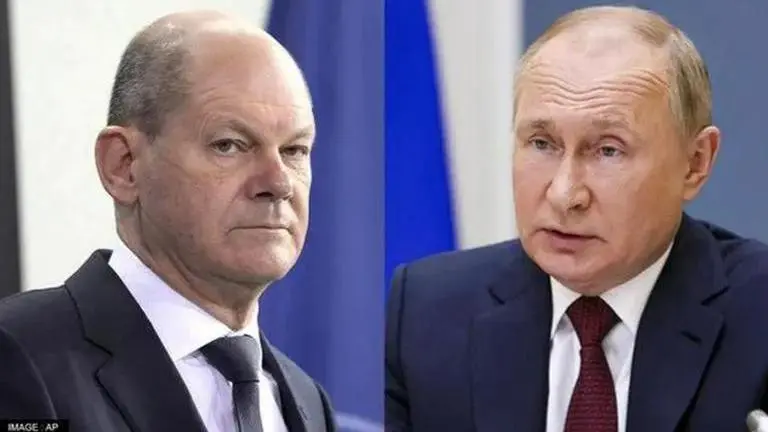Updated 14 September 2022 at 14:34 IST
Putin tells Scholz gas delivery issues to Europe triggered by Western sanctions
Russian President Vladimir Putin spoke with German Chancellor Olaf Scholz on September 13 about the current state of the European energy sector.
- World News
- 3 min read

Russian President Vladimir Putin spoke with German Chancellor Olaf Scholz on September 13 about the current state of the European energy sector. According to a statement released by Kremlin, Putin informed Scholz that the issues with gas deliveries to Europe via the Nord Stream-1 project were caused by Western sanctions against Moscow.
The statement read, "Describing the current situation in the European energy sector, Vladimir Putin stressed that Russia has been and remains a reliable supplier of energy resources, fulfilling all its contractual obligations, and interruptions, for example, in the operation of the Nord Stream 1 gas pipeline, are caused by anti-Russian sanctions that interfere with its maintenance."
Any attempts to blame Moscow for European energy concerns, according to Putin, are disingenuous, given the respective countries' authorities' closure of gas supplies through Ukraine and Poland, as well as their unwillingness to allow Nord Stream-2 operation. When the first interruptions in the flow of Russian gas to many European states started to manifest at the beginning of July, the energy situation in the EU grew worse.
This was specifically brought on by technical and maintenance challenges with the turbines on the Nord Stream pipeline due to sanctions spearheaded by the US-led West. Following that, the European Commission urged the EU member states to make advance preparations for the eventual cessation of all Russian gas imports. It also unveiled a plan for all member nations to voluntarily cut their gas use by 15% from August 1, 2022, to March 31, 2023.
Europe's energy crisis
With the Russian-Ukrainian war approaching its 200th day, Europe is facing a full-fledged, unprecedented energy crisis, and the winter season is not far away. Energy prices in the United Kingdom, for example, are likely to rise by 80% this winter, according to the country's energy regulator Ofgem.
Advertisement
Germany, on the other hand, has launched a €65 billion assistance package in response to the country's soaring energy expenses. Prior to the invasion, Germany purchased almost 55% of its natural gas and more than 30% of its crude oil supplies from Russia. It comprises one-time payments to vulnerable enterprises as well as tax benefits for businesses that primarily deal with energy.
One of the main ways for supplying gas from Russia to Europe is Nord Stream-1, although it is now being utilised to a small portion of its potential due to problems with turbine maintenance. The Nord Stream-2 pipeline has been constructed but has yet to be placed into service, owing to sanctions imposed on Russia.
Advertisement
Image: AP
Published By : Aparna Shandilya
Published On: 14 September 2022 at 14:34 IST
